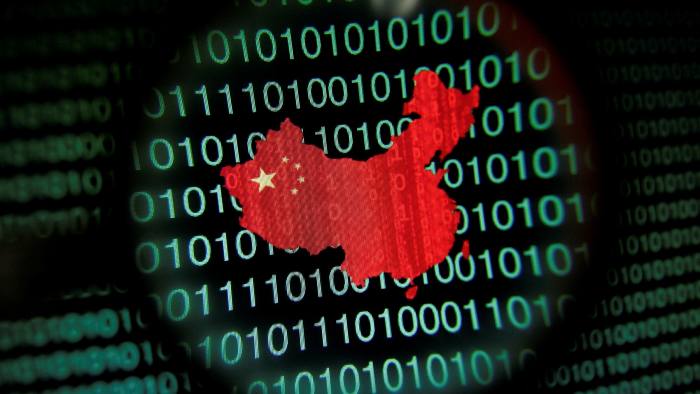
China has challenged US-led accusations that Beijing was at the heart of a wave of global cyber attacks including an offensive against a Microsoft email application that affected tens of thousands of organisations.
Diplomats across the EU, UK, Canada, Norway and New Zealand issued statements on Tuesday slamming the allegations as “groundless” and a “malicious smear”.
“China urges Canada to abandon its cold war mentality and ideological prejudice . . . stop political manipulation on relevant issues, and stop unprovoked attacks and deliberate slander against China,” said Beijing’s embassy in Ottawa.
Zhao Lijian, a spokesperson for China’s foreign ministry, stressed that the claims of a small number of countries did not represent the international community and called on the US to stop its own cyber attacks against his country.
“China will take necessary measures to firmly protect its cyber security and its own interests,” he said.
Beijing’s sharp response followed a rare co-ordinated effort by the US, Nato, the EU, the UK, Australia, Canada, New Zealand and Japan. The western allies accused China of collaborating with criminal cyber gangs and compromising global security, including an attack on Microsoft’s Exchange application that allowed hackers to access the email systems of a wide range of private and public sector organisations.
The US also alleged that Beijing’s Ministry of State Security oversaw a sweeping campaign to infiltrate foreign companies, universities and government organisations throughout much of the 2010s.
The Global Times, a state-backed tabloid, accused US-based hackers of longstanding and repeated cyber attacks on Chinese companies, research institutes and Communist party departments. The nationalist paper alleged one US-based group called “A” launched so-called brute force attacks last October in a bid to remotely access servers from Chinese groups, including Chinese steel and car engine companies.
“All major countries occasionally suffer from cyber attacks and in this regard China has been harmed much more than the US,” it wrote in an editorial.
“The US is forcibly creating a new area of geopolitics by turning an internet dispute into a major clash,” by roping in allies to frame China as a sinister actor, it added.
The co-ordinated effort followed a separate joint approach by the US, UK, the EU and Canada in March to impose sanctions against Chinese officials over the mass internment of ethnic minorities in Xinjiang. Beijing retaliated with its own sanctions and the resulting diplomatic spat led to a freeze in EU-China market-access negotiations.
Fergus Hanson, director of the International Cyber Policy Centre at the Australian Strategic Policy Institute, a think-tank, said the multilateral approach was “harder to counter” for China.
“Beijing would like to keep the issue bilateral, where it can appeal to, or punish, individual countries,” he said.
The accusations over China’s alleged cyber activities came amid intensifying diplomatic hostilities between the world’s two biggest economies.
Washington and Beijing have not held top-level meetings since March, when talks in Alaska between Antony Blinken, US secretary of state, and Yang Jiechi, the top Chinese foreign policy official, ended acrimoniously.
Beijing this month refused to grant Wendy Sherman, US deputy secretary of state, a meeting with her counterpart in China when she visits Asia this week. China had previously rebuffed requests for Lloyd Austin, US defence secretary, to meet General Xu Qiliang, China’s most senior military official.
The latest US-China stand-off has also emerged as Joe Biden seeks to step up engagement after months of pursuing a more hardline stance against the policies of Xi Jinping, the Chinese president.
Despite those overtures, however, the Biden administration has continued to exert pressure over Beijing’s crackdown in Hong Kong and policies that erode freedoms promised to financial hub following the handover from British to Chinese rule in 1997.
Additional reporting by Xinning Liu in Beijing#techFT brings you news, comment and analysis on the big companies, technologies and issues shaping this fastest moving of sectors from specialists based around the world.
No comments:
Post a Comment